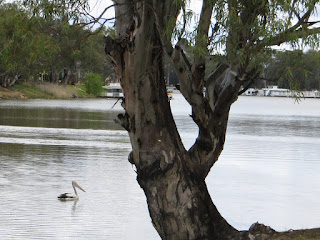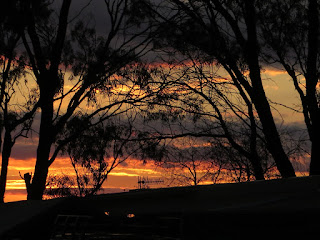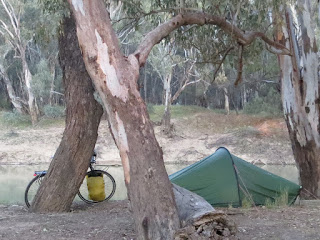When I read about forest schools here
first about three years ago, there was hardly any information about
them. None of the fancy documentaries and movies and articles and news
programs that have profiled this great and legitimate path for learning.
Part of me wishes I had all that information too, it would have been
less daunting! But part of me also knows that I probably would have made
the same decision anyway. If anything, the decision might have been a
little easier for me, since I had to trust my gut instinct on that whole
kooky notion of leaving my then two and a half-year old out in the
woods all day, weather, elements and all.
Still, while it was my gut instinct that
helped me go for it, there were some key questions that I ended up
asking myself. Not just when we first thought about it, but then again
and again in the first days and weeks, even months, to determine and
redetermine that this choice was the right one for us, and I thought I
would share those here for those considering the forest schools program
either here in Denmark, or in the multitude of other countries where
these types of schools are also offered. And none of these questions
have anything to do with whether you’re an outdoors person yourself or
if you enjoy making rations on a bunsen burner etc. My point it, you
don’t necessary have to be the “forest type” yourself in order to go for
it, but you do have to believe and trust that all this forest stuff is
ultimately a good thing.
Do you fundamentally believe that being outdoors all day, every day is right for your child?
This is the first question because it is probably the most important
one, and I can’t stress that enough. First, because it is critical that
you think about this experience from the perspective of your child.
You know your child better than anyone, so really go with what your
instinct is on whether this is a good fit for them. In some cases, you
might find that it’s all the recent articles and shows and all of that
which have made the “idea” of forest schools appealing to us as adults
as the next shiny thing, overlooking what might be the best fit for our
child.
But on the flip side, it’s probably more likely that we have the
opposite problem. Meaning that, it might be that time outside and
independence and self-driven exploration is what are children are
craving. But we as parents might have envisioned something else – like
early education, and tutors and Mandarin Chinese. If forest school is
right for your child, are you willing to set aside whatever expectations
you had so that your child gets what they need, and not what you
thought you wanted?
The second reason that it is important is because there is a high
chance you might doubt yourself in your decision. More than once.
Especially on the days when your children might struggle a bit. And if
you’re an expat in Denmark, for example, they won’t just be getting
used to the forest – that’s actually the easy part – but they will also
be getting used to the culture and language. It will seem easier some
days in the beginning to pull them out and start all over with something
safer…more traditional…so ask yourself, do you fundamentally think this
is right? If you do, go for it and remember that core belief on the
days that you doubt yourself.
Do you trust your forest school institution and your forest school teachers?
This is arguably just as important as the first. Trust is a critical
part of making the forest school system work because by definition, we
expose our kids to environments and challenges and tools and countless
other things that have an element of potential difficulty or potential
danger to them. Good forest schools are run by extremely caring,
trained staff who are capable in the areas they need to be good forest
school teachers. They might not follow the same protocols or have the
same daily newsletters or all those doo-dads of traditional schools, but
outdoors, in the woods, they have a complete handle on the situation.
Do you feel that they do? Do you trust that they do? Do you feel that
the experience is there between the teachers and the institution so that
when you leave after dropping them off for the day, you do so with
confidence?
Are you okay with a different sequence to learning?
It’s a common misconception that while the children are out in the
woods “all day” that they’re not learning anything, because they are
busy playing. But that’s not at all the case. I’m still floored
sometimes when my daughter will recite back the alphabet or spellings to
me, or addition sequences, or strings of rhyming words…not to mention
when she identifies plants I shouldn’t touch or random bird species I’ve
never heard of. I didn’t teach her those things, the forest school
did. But they don’t teach with traditional pen and paper, with desks
and blackboards. So learning occurs but it’s entrenched in their day
and it often comes in different sequencing or at a different pace that
we might expect? Are you okay with that?
Are you comfortable with dirt?
It goes without saying perhaps that children at forest school get
dirty. Really, really dirty. They relish dirt, and it’s all part of
their playground: dirt, mud, sand…you name it. It will be on their
clothes (constant laundry), in your car (constant car wash) and in
random places you didn’t expect. Making time for baths is a must. So
is scrubbing under fingernails. So is replacing clothes and gears on a
regular basis, not to mention having two sets of everything on hand.
It’s a good kind of dirty (
remember the two kinds?),
but it still is dirty. I read in an article once that one of the main
reasons teachers didn’t take their kids outside is because parents would
call and complain about how dirty their kids would come home. Would
the parent calling be you?
Are you okay with a lot being out of your hands?
As our children transition to any school, we face the increasing
pressure to be comfortable with the fact that much of their day is away
from us. But in forest school, there is also a good part of the day
that’s out of your hands. If you wanted to drop by and check on them at
the school, they wouldn’t be there – they would already be out and
about on their daily explorations. You might not know exactly where
they are because the original location for the day wasn’t the right one
for some reason so they changed course to follow a deer herd, or chase
the sun, or take advantage of a patch of fresh snow for sledding. If
you do have trust, as mentioned above, in the school and teachers, are
you willing to follow through on that and trust that they are making the
best decisions for the child/children throughout the day without your
input?
Can you be on time?
In our school, we have a lot of flexibility on the drop-off window
which is a godsend for parents. But in many places in the city, the
children get an earlier start and unlike ours who ride public transport,
they often take a chartered bus that departs at a given time. Which
means that if you miss the bus, you also miss school. If you are
looking at an institution that buses, or that has a fixed early
non-negotiable departure time, can you realistically make that time
every morning?
Are you prepared to be considered just a little bit weird?
Perhaps you might even be
considered a hippie?
But if you run in circles where choosing schools to align with prep
schools is a thing, or where traditional schooling is highly valued, are
you comfortable with friends and acquaintances thinking you’re slightly
off-kilter? If you’re truly comfortable with yourself and the answer to
the first question, what some other people think is the least of your
worries, but even with high confidence, it alway stings the heart a bit
when someone questions your parenting or choices. And it certainly does
happen (it usually sounds something like “That is so exciting that
little Bobby goes to the woods all day…of course, we could never do
that, I would never be able to feel that he was safe out there” or,
“It’s so fantastic that Suzy does nothing but play all day – what kind
of tutors have you lined up for her to make sure she will ever learn to
read? “). Are you okay shrugging off the comments of others from time
to time because you fundamentally believe that being outside all day,
every day is good for your child?
































